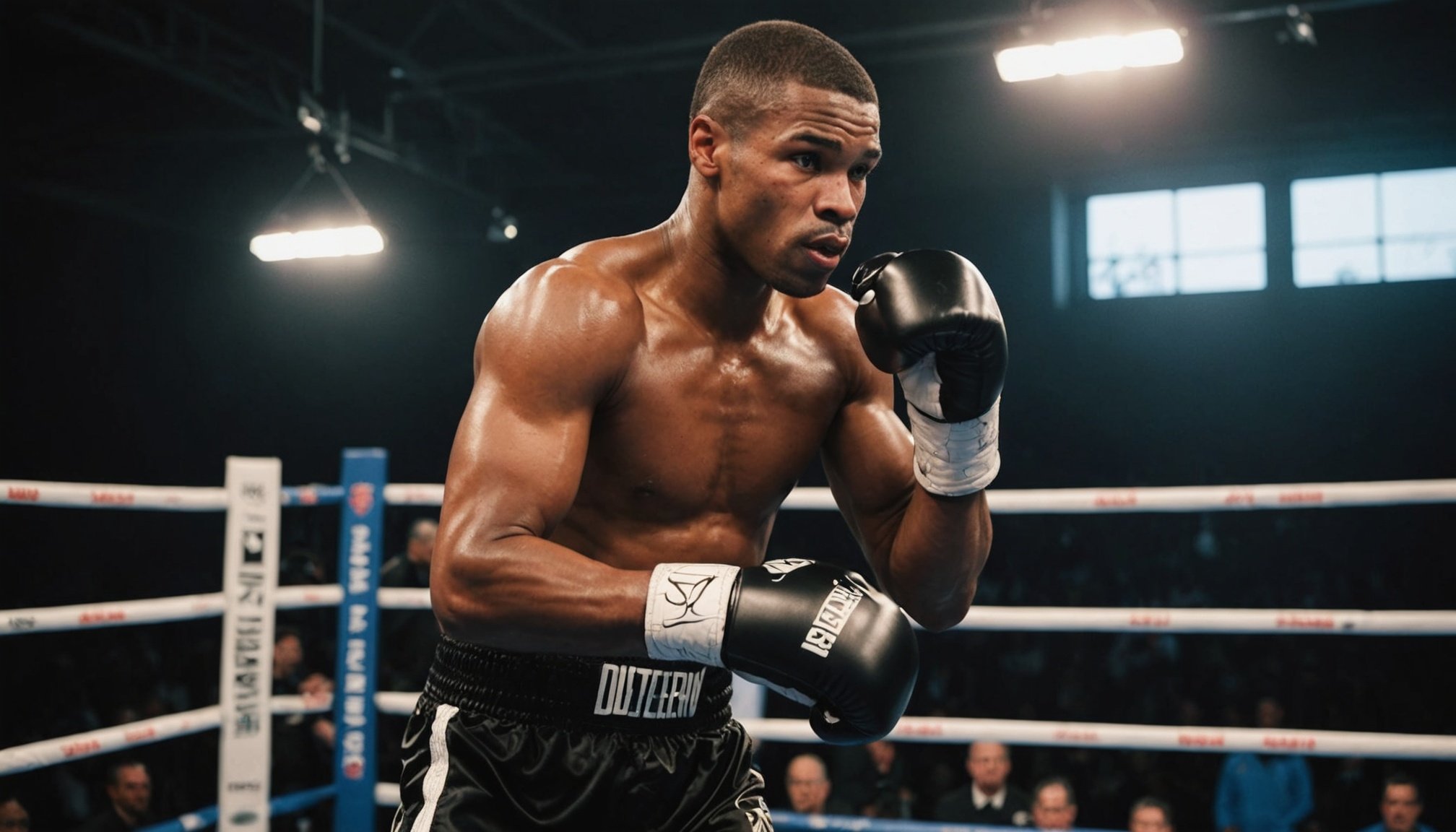Unlocking Mental Mastery: Key Strategies for Boxers to Boost Focus and Confidence Ahead of Fight Night
When it comes to the world of boxing and other combat sports, physical strength and technical skill are only half the battle. The mental game is just as crucial, if not more so, in determining a boxer’s success in the ring. Here, we delve into the key strategies that boxers can employ to enhance their mental preparation, boost their focus, and build the confidence needed to excel on fight night.
The Importance of Mental Preparation in Boxing
Mental preparation is the backbone of a boxer’s training regimen. It’s what separates the champions from the rest and enables fighters to perform at their best even under the most intense pressure.
Also to read : Protecting dancers: key conditioning strategies to avert overuse injuries
“Mental toughness is often the deciding factor between fighters who merely survive and those who thrive under pressure,” notes Coach Johann, a specialist in mental training for combat sports[1].
Building Mental Resilience Through Training
Visualization and Mental Rehearsal
Visualization is a powerful tool in a boxer’s mental arsenal. By vividly imagining themselves performing techniques and winning fights, boxers can build confidence and prepare their minds for the challenges ahead.
Also to read : Maximize your muscle growth: how protein timing revolutionizes weightlifting results
“Visualization helps fighters recover quickly from setbacks and stay focused during challenging moments,” explains Coach Johann. This technique can be practiced before training, during downtime, and especially before fights[1].
Stress Inoculation
Stress inoculation involves exposing oneself to controlled stress to build resilience. This can be achieved through sparring, high-intensity interval training (HIIT), and other tough workouts.
“By putting your mind under pressure in controlled situations, you build the ability to stay calm, focused, and composed in high-stress situations—like a fight,” Coach Johann emphasizes[1].
Breathing Techniques
Breathing exercises are essential for managing stress and anxiety. Techniques like box breathing and diaphragmatic breathing help boxers stay calm under pressure.
“Controlled breathing helps you manage emotions, clear your mind, and prevent panic,” notes Coach Johann. These techniques can be used before and after training sessions, as well as in the lead-up to a fight[1].
Managing Pre-Fight Nerves
Pre-fight nerves are a natural part of any fighter’s experience. Here are some strategies to manage these nerves effectively:
Improve Self-Awareness with Quietude
Self-awareness is critical for high performance and well-being. Spending a few minutes each day in quiet contemplation can help boxers notice their thoughts and emotions without judgment.
“Practice non-judgment of thoughts and emotions and improve directing your focus; this will help you do the same before the fight,” advises an expert from Kizo[2].
Refocus on the Process with a Clear Fight Plan
Before a fight, it’s crucial to refocus on the process rather than getting caught up in unhelpful emotions or thoughts. Shadow boxing while focusing on the game plan can be particularly helpful.
“Refocus on what you have to do to win; e.g., coming forward, responding to every kick, etc.,” suggests the expert from Kizo. This approach helps boxers stay focused on their strengths and the present moment[2].
Use Cues to Direct Your Attention
Using visual or physical cues can help boxers refocus when their minds wander. This could be something as simple as stamping their feet or hitting their gloves together.
“Using cues means you don’t get caught up in unhelpful thoughts or emotions; and helps you to refocus on what you have to do in the moment,” explains the expert from Kizo[2].
Achieving the Flow State
The flow state is a mental state where boxers are completely immersed in the task at hand, with no distractions or self-doubt. Achieving this state can significantly enhance performance.
“Fighters who can achieve a flow state during training tend to have more consistent, high-level performances,” notes Coach Johann. This state is characterized by effortless control and a complete focus on the present moment[1].
The Role of Coaches and Team Dynamics
Coaches and teammates play a vital role in a boxer’s mental preparation.
“Coaches lay a strong emphasis on foundational skills. Fundamentals will always be your strongest asset,” says Carlos Prates’ head coach. This focus on basics ensures that boxers have a solid understanding of crucial techniques before moving on to complex strategies[3].
Team dynamics also contribute significantly to a boxer’s mental toughness. Training in a supportive and collaborative environment can enhance everyone’s growth.
“Training with Carlos pushes you to be better. He’s not just competing against you; he wants everyone to excel,” remarks one of Carlos Prates’ teammates. This collaborative attitude creates a nurturing atmosphere where each member contributes to refining each other’s skills[3].
Practical Insights and Actionable Advice
Here are some practical tips and insights that boxers can incorporate into their training:
Mental Techniques for Training
- Mental rehearsal of techniques and fight scenarios: Practice visualization before training, during downtime, and before fights.
- Exposure to controlled stress: Engage in sparring, intense workouts, and high-pressure situations to build resilience.
- Controlled breathing: Use techniques like box breathing and diaphragmatic breathing to reduce anxiety and stress.
- Transforming negative thoughts into empowering ones: Practice positive self-talk throughout training and during moments of self-doubt.
- Gradually increasing the intensity of training: Adapt to tougher workouts, sparring, and high-intensity training to build mental and physical strength[1].
Physical and Mental Health
Physical fitness is closely linked to mental health. A well-rounded training regimen should include strength training, mobility exercises, and cardiovascular fitness.
“Research suggests that athletes who prioritize strength and conditioning reduce their risk of injury by up to 50%,” notes the article on Carlos Prates’ training philosophy[3].
Mindfulness and Self-Awareness
Mindfulness and self-awareness are key components of mental preparation. Here are some ways to practice these:
- Daily quietude: Spend a few minutes each day in quiet contemplation to notice thoughts and emotions without judgment.
- Focus on the present moment: Use cues to refocus on the task at hand and avoid getting caught up in unhelpful thoughts or emotions.
- Positive self-talk: Transform negative thoughts into empowering ones to maintain a positive mindset throughout training[2].
Table: Comparing Mental Preparation Techniques
| Technique | Description | Benefits | When to Use |
|---|---|---|---|
| Visualization | Vividly imagining techniques and fight scenarios | Builds confidence, enhances focus | Before training, during downtime, before fights |
| Stress Inoculation | Exposing oneself to controlled stress | Builds resilience, improves focus under pressure | During sparring, intense workouts, high-pressure situations |
| Breathing Techniques | Using box breathing, diaphragmatic breathing | Reduces anxiety and stress, clears the mind | Before and after training, before fights |
| Self-Awareness | Practicing quiet contemplation to notice thoughts and emotions | Improves focus, reduces anxiety | Daily, especially before fights |
| Cues | Using visual or physical cues to refocus | Helps stay focused on the task at hand | During training, before fights |
Success Stories and Quotes
Carlos Prates, a renowned fighter, exemplifies the importance of mental preparation. Here’s what he and his coaches have to say:
“When you can see yourself winning, you’re already halfway there,” says Prates’ coach, highlighting the power of visualization[3].
“Every fight is a puzzle; you have to solve it while you’re in the ring,” remarks Carlos Prates, emphasizing the need for adaptability and mental strategy during fights[3].
Long-Term Benefits of Mental Training
Mental training is not just about short-term success; it has long-term benefits that extend beyond the ring.
“Mental toughness developed in boxing equips you to approach problems with a proactive and determined attitude in all aspects of life,” notes the A1 Boxing Club blog[5].
Unlocking mental mastery is a journey that requires consistent effort, dedication, and the right strategies. By incorporating techniques like visualization, stress inoculation, breathing exercises, and mindfulness into their training, boxers can build the mental toughness necessary to excel in combat sports.
As Coach Johann aptly puts it, “Mental toughness is built through consistent mental training. It’s vital for overcoming obstacles, managing fear, and maintaining peak performance during a fight”[1].
By focusing on both physical and mental preparation, boxers can ensure they are fully equipped to face the challenges of fight night with confidence, focus, and the mental resilience to succeed.











